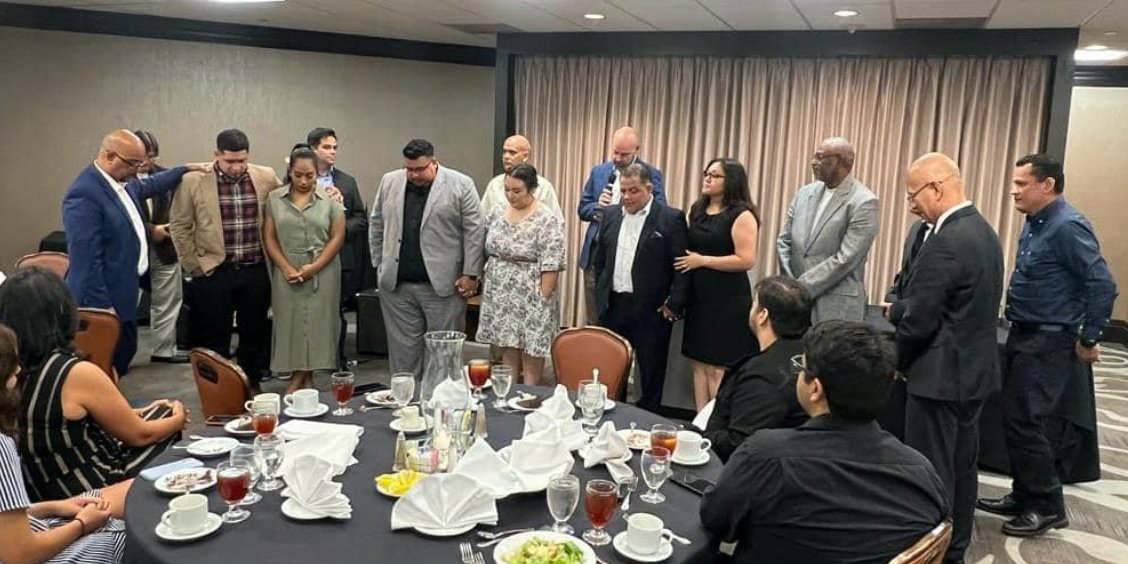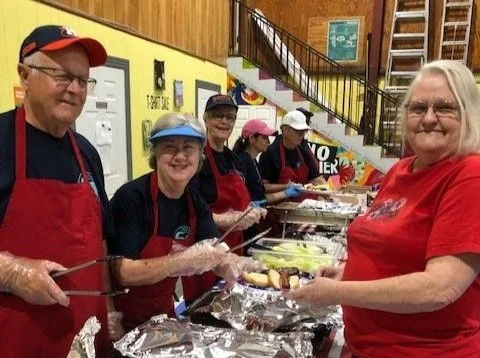Reaching Your Cross-Cultural Neighbors from a Social Distance
Thanks to COVID-19, many Christians might feel at a loss for how to live out the Great Commission call in day-to-day life. How could we possibly make disciples of all nations when simply engaging with friends, family, and our church community seems so difficult? Does Christian outreach have to wait for the coronavirus to dissipate? For churches to be at capacity?
Not at all! God, in His goodness, has been bringing the nations to us. He’s given us gospel work to do right where we are—even in a pandemic. You may have missed your summer mission trip to Africa, but you still may have the opportunity to engage the Gambian ex-pat living in your neighborhood. Even in a global pandemic, you can find creative ways to reach the nations near you.
Start Where You Are
If you don’t already know any internationals, you may think cross-cultural outreach has to wait until things “return to normal.” But now is as good a time as any to get started. Before health concerns became an issue, I wrote a general guide for engaging internationals near you, and the principles remain the same today—Continue the things you’re already doing, but do them with prayer and purpose.
Are you currently climbing the walls of your house? Do you have tiny humans itching to do something different? I feel you. Take a drive for a “windshield survey” of your community and boost family morale at the same time. If you have kids, you can earn some parenting points by making it a fun scavenger hunt. Pray as you drive around, and look for points of interest—restaurants, international markets, and other signs that an ethnic enclave may be nearby.
“Continue the things you’re already doing, but do them with prayer and purpose. ”
If you see restaurants and businesses that are open, go ahead and visit. You not only get the chance to support a local business but also to build a relationship with owners during a slower-than-usual time. If these locations aren’t open, make a list of points of interest to frequent as things begin to calm down.
If you’re able to walk in parks right now, by all means, take a walk. Identify parks that serve as natural third places for cross-cultural relationships. These are places where kids and families from all kinds of different countries can be found together. As you see people, stop and talk to them from an appropriate distance. Many of us are starved for outside conversations and will gladly talk to strangers given the opportunity.
If you’re not able to get out at all, you can still use apps on your phone or other kinds of online demographic resources to learn more about what people groups might be near you. Though the information may be inaccurate right now, it could serve as a springboard for understanding the way things once were—and might again be some day.
Get in Touch
For those of you who already have relationships with internationals, your task is even easier. If they’re tech-savvy, use an online means of communication to stay in touch. Ask them what tools they’re comfortable using, and adapt to what they already use. Most of my international friends frequently use WhatsApp, Facebook messaging, and texting for friends and family living overseas. Remember that talking on the phone or attempting to spell in a foreign language may intimidate an English language learner, so be patient.
“Listen well, and be ready to share gospel stories and hope.”
Consider how likely/unlikely your friend is to be honest depending on their culture and the means of communication you’re using. Most of the internationals I know are more likely to tell you how they’re really doing 15-30 minutes into a face-to-face encounter. If your friend seems evasive, maybe a video chat or a socially-distanced visit would be more beneficial.
If they don’t use a lot of technology, you can still find ways to keep in touch—even if doing so is more difficult. Whether virtually or physically, make a point to check in on your international friends regularly using the necessary precautions for the situation.
Ask how they’re doing. Ask about their family and friends around the world. Listen well, and be ready to share gospel stories and hope with them. Share a testimony of how the Lord is working in you through the highs and lows of 2020 thus far.
Be a Friend
One of the best ways to serve our international neighbors is to be a cultural insider who can help them navigate the murky waters we find ourselves in. If we find it hard to make school decisions, get groceries, understand politics, and gather with our community, imagine how much more difficult it is for those who already find our system foreign.
As best as is possible, help your international friends find accurate information about what’s happening globally, nationally, and locally. Offer to discuss any documents they find confusing regarding their work, school, or immigration status. Help them find where they can get COVID testing, language practice, trust-worthy news (or at least avoid clickbait), and other resources they may need.
“Be a safe person your cross-cultural friends can come to about hot-button issues without fear of backlash. ”
Be a safe person your cross-cultural friends can come to about hot-button issues without fear of backlash. Many internationals misunderstand the hostility regarding masks, race, politics, and religion in the U.S. They may have already experienced fallout for using the wrong terms or missing an iceberg looming beneath these surface issues. I know of international businesses that have been shut down for saying the wrong thing about a cultural issue they didn’t fully understand.
Be gracious with your cross-cultural friends, and explain these issues as objectively as possible. Ask how issues play out in their home culture. Explain the differences between your position as a Christian and the thoughts of the larger American culture. This kind of conversation will naturally open a pathway to discussing your faith and how and why you live as a Christian.
As you display the love of Christ to your neighbors, take every opportunity to share the past, present, and future hope you have as a Christian. The Lord forgives our sins, gives us His indwelling Spirit, and assures a bright future—regardless of how we may feel today.
One day, He will wipe away our tears, fulfill justice, and bring healing to the nations. And we get to be a part of His plan even today. Just because the coronavirus has limited our ability to gather as a church doesn’t mean it can stand in the way of meaningful gospel outreach through the Body of Christ.
Marie Burrus is UBA's Communications Specialist. She manages, edits, and contributes content for UBA's blog, website, and social media outlets. Marie uses her Master's degree in Intercultural Studies, her experience as a missionary in West Africa, and her lifelong love of words to write on outreach, culture, and the Christian life.
We’ll send one succinct weekly email
with the best news, events, and info
for churches in the Houston area
A version of this article originally posted on The Intersect Project.
Photo by Evgeni Tcherkasski on Unsplash










Women are busy—maybe now more than ever. Here are simple ways to encourage and equip women to develop Christ-centered relationships, study God’s word, and train others to do the same.